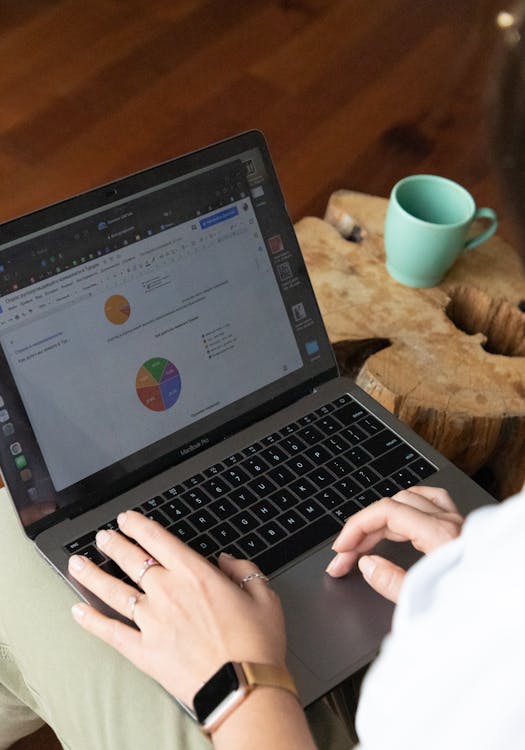Protecting Your Finances from Fraud and Scams
29.03.2023 23:51 | Fin.Org.UAIntroduction

In today’s world, where technology is advancing rapidly, there is an ever-increasing risk of financial fraud and scams. Fraudsters are becoming more sophisticated, using clever tactics to trick people into giving away their personal information and stealing their money. In this article, we will discuss some common types of fraud and scams, as well as provide tips on how to protect yourself and your finances.
Part 1: Common Types of Fraud and Scams
-
Phishing Scams: This type of scam involves sending fraudulent emails, text messages, or phone calls that appear to be from legitimate companies. The goal is to trick the victim into providing sensitive information, such as login credentials or credit card numbers.
-
Investment Scams: These scams often promise high returns on investments with little to no risk. They may use aggressive sales tactics or pressure you to invest quickly before you have a chance to do your research.
-
Identity Theft: This occurs when someone steals your personal information, such as your Social Security number or credit card number, and uses it to open accounts or make purchases in your name.
-
Lottery Scams: In this scam, fraudsters will claim that you have won a large sum of money in a lottery, but in order to claim the prize, you must pay a fee or provide personal information.
"Fraud prevention is a full-time job for businesses, but it’s not just about protecting your assets; it’s about protecting your reputation." - Timothy Holmes, Director of Fraud Prevention at TD Bank
Statistic: In 2020, the Federal Trade Commission (FTC) received over 4.7 million reports of fraud and identity theft, resulting in a total loss of $3.3 billion. (Source: Federal Trade Commission)

Part 2: Tips for Protecting Your Finances from Fraud and Scams
-
Be wary of unsolicited emails, texts, or phone calls: If you receive a message or call from someone you don’t know, do not provide any personal information. Legitimate companies will not ask for your personal information in unsolicited messages.
-
Do your research: Before investing or giving money to a company, research their reputation and credentials. Check for reviews and complaints online, and verify that they are registered with relevant regulatory agencies.
-
Protect your personal information: Use strong passwords and enable two-factor authentication on your accounts. Be cautious about sharing your personal information, especially online.
-
Monitor your accounts regularly: Check your bank and credit card statements regularly for any unauthorized transactions. If you notice any suspicious activity, contact your bank or credit card company immediately.
-
Stay informed: Keep up to date with the latest scams and frauds by reading news articles and alerts from trusted sources.
"Education is the most powerful weapon which you can use to change the world." - Nelson Mandela
Statistic: According to a survey by the National Cyber Security Alliance, only 34% of Americans feel confident in their ability to protect themselves from cyber threats. (Source: National Cyber Security Alliance)
Conclusion
Protecting your finances from fraud and scams requires vigilance and awareness. By being cautious about unsolicited messages, researching companies before investing, protecting your personal information, monitoring your accounts, and staying informed about the latest scams, you can reduce your risk of becoming a victim of financial fraud. Remember, education is key to protecting yourself and your finances. Stay informed and be proactive in protecting your financial future.
I. Introduction
A. Explanation of financial fraud and scams
B. Importance of protecting oneself from financial crimes
C. Scope of the article
II. Common Types of Financial Fraud and Scams
A. Identity Theft
1. Definition and examples
2. Consequences of identity theft
B. Phishing
1. Definition and examples
2. Consequences of falling for phishing scams
C. Investment Scams
1. Ponzi schemes
2. Pump-and-dump schemes
D. Credit Card Fraud
1. Skimming
2. Card-not-present fraud
E. Online Shopping Scams
1. Fake websites
2. Counterfeit products
F. Lottery and Sweepstakes Scams
G. Romance Scams
III. Warning Signs of Fraud and Scams
A. Unsolicited contact
B. High-pressure tactics
C. Requests for personal information
D. Requests for payment in unusual forms
E. Promises of high returns with low risks
F. Inconsistencies in communication
G. Poorly designed websites or emails
IV. How to Protect Yourself from Financial Fraud and Scams
A. Safeguard your personal information
1. Use strong passwords
2. Enable multi-factor authentication
B. Be cautious when providing personal information
1. Verify the legitimacy of the requester
2. Be cautious with unsolicited requests
C. Monitor your financial accounts
1. Regularly review bank and credit card statements
2. Set up account alerts
D. Stay informed about common scams
1. Subscribe to scam alerts
2. Educate yourself on current fraud trends
E. Use secure payment methods
1. Credit cards vs. debit cards
2. Secure online payment services
F. Be cautious when investing
1. Research investment opportunities
2. Consult with a trusted financial advisor
V. What to Do If You Become a Victim of Financial Fraud or Scams
A. Report the incident
1. Contact your financial institution
2. Report to local law enforcement
3. File a complaint with relevant agencies
B. Monitor your credit
1. Check your credit reports
2. Place a fraud alert or credit freeze
C. Recover from identity theft
1. Close fraudulent accounts
2. Correct your credit report
D. Learn from the experience
1. Identify how the fraud occurred
2. Implement additional protective measures
VI. Conclusion
A. Recap of the importance of financial protection
B. Encouragement to stay vigilant and proactive in financial security

